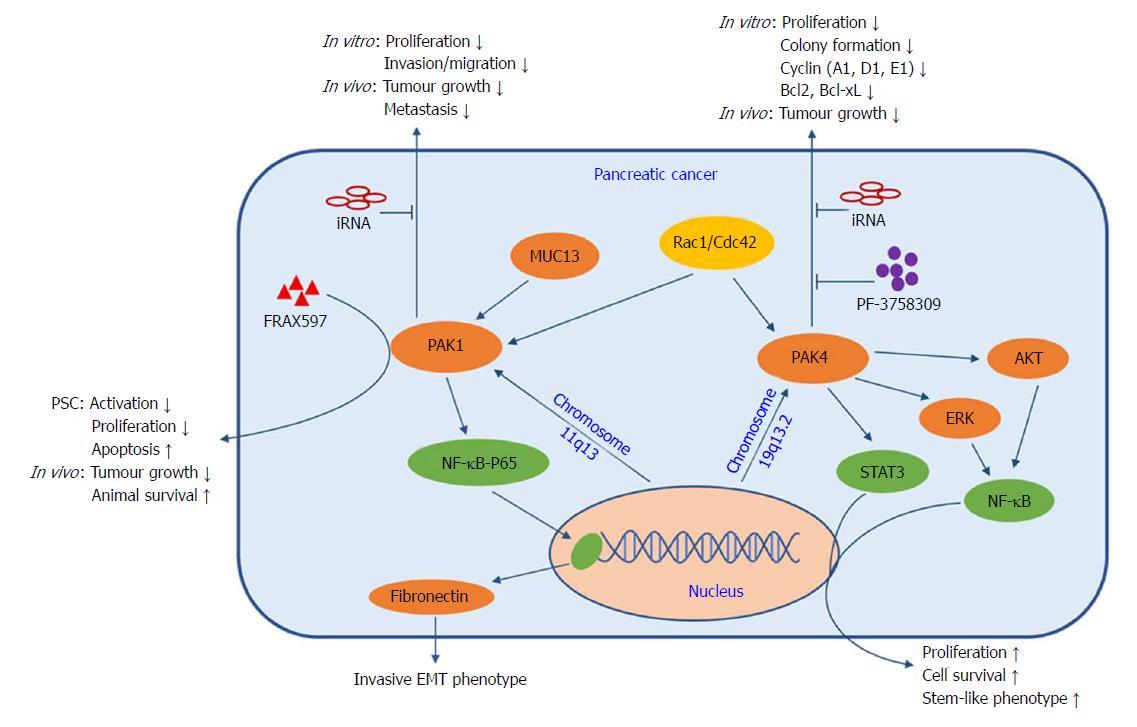Copyright
©The Author(s) 2018.
World J Gastroenterol. Sep 7, 2018; 24(33): 3709-3723
Published online Sep 7, 2018. doi: 10.3748/wjg.v24.i33.3709
Published online Sep 7, 2018. doi: 10.3748/wjg.v24.i33.3709
Figure 3 p21-activated kinases signalling in the development of pancreatic cancer.
PAK signalling is involved in several pathobiological processes in pancreatic cancer, including proliferation, migration/invasion, apoptosis and maintenance of stem cell-like properties. Amplification of the PAK1 and PAK4 genes, present within the chromosomal regions 11q13 and 19q13.2, respectively, has been observed. Activated PAK1 regulates cell transformation and the invasive EMT phenotype of pancreatic cancer cells via the NF-κB-p65-fibronectin axis. Additionally, MUC13 promotes cancer cell growth and invasion/migration, and reduces animal survival, by up-regulating expression and phosphorylation of PAK1. Furthermore, PAK4 modulates proliferation and survival by mediating the activity of NF-κB via AKT- and ERK-dependent pathways, and cancer stem cell-like properties via STAT3 signalling. Pharmacological or genetic inhibition of PAK1 or PAK4 leads to decreased cancer cell proliferation, invasion/migration and PSC activation in vitro, and reduced tumour growth and metastasis, and increased animal survival in vivo. PAK: p21-activated kinases; PSC: Pancreatic stellate cells.
- Citation: Wang K, Baldwin GS, Nikfarjam M, He H. p21-activated kinase signalling in pancreatic cancer: New insights into tumour biology and immune modulation. World J Gastroenterol 2018; 24(33): 3709-3723
- URL: https://www.wjgnet.com/1007-9327/full/v24/i33/3709.htm
- DOI: https://dx.doi.org/10.3748/wjg.v24.i33.3709









